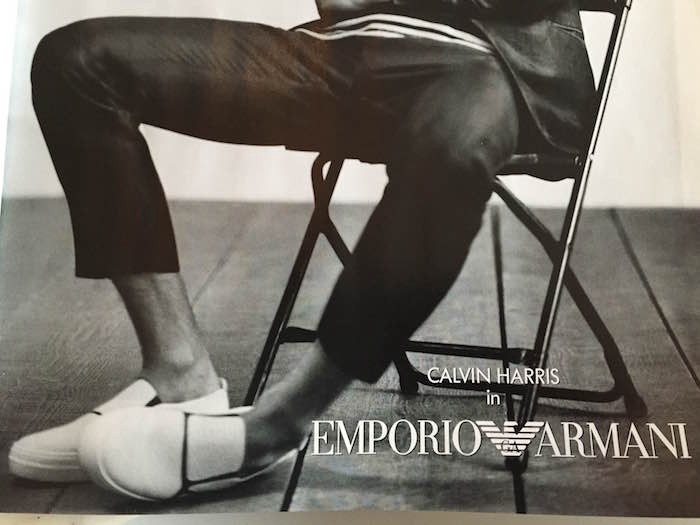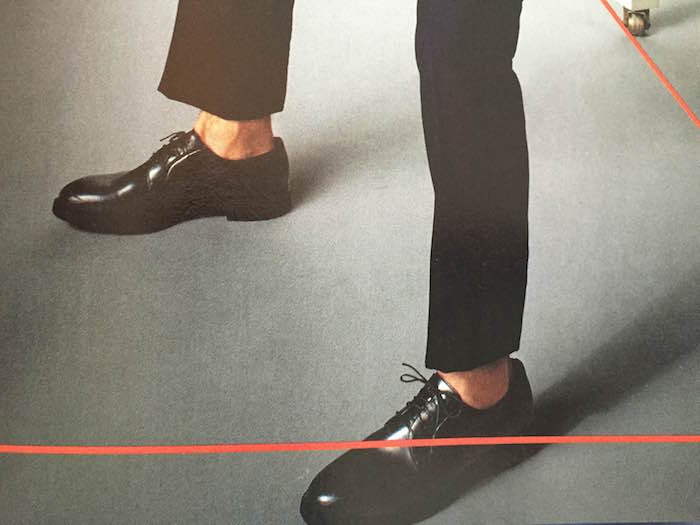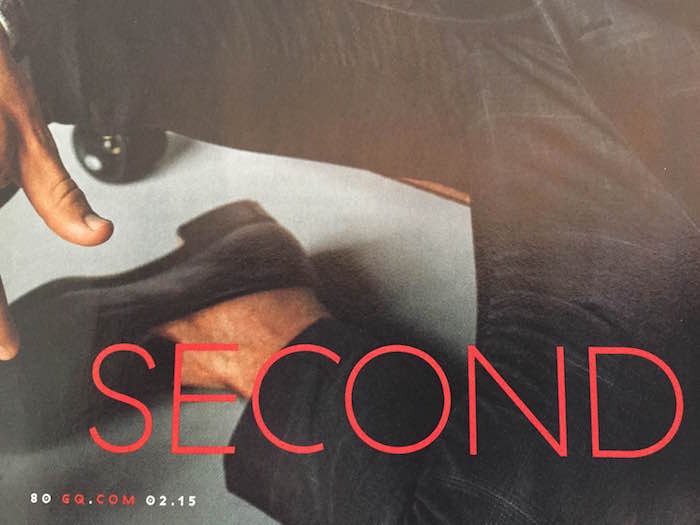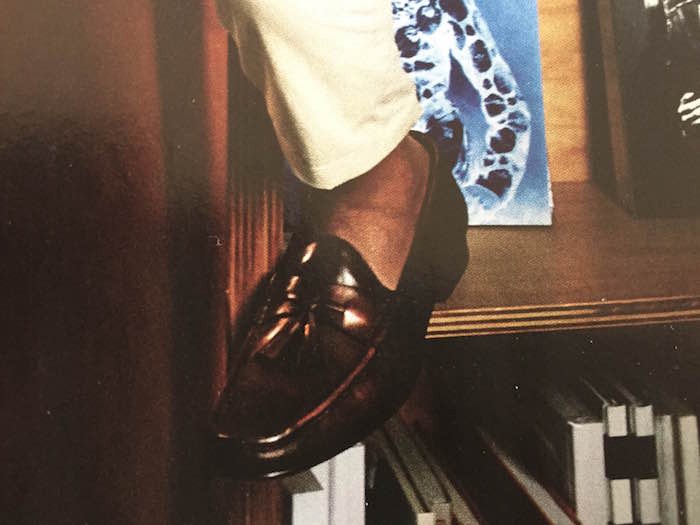Should I Be a Poorly Paid Writer or a Better-Paid Publicist?
by The Concessionist

The Concessionist gives advice each weekend about the sordid choices of real life. Trouble? Write today.
Dear Concessionist,
Is there a future in writing? Or in publishing at all? I’m in my early 30s, and find myself kind of unexpectedly at a career/life crossroads. For the past many years, I’ve been more or less happily living some milquetoast version of a professional double life. My main employment has been in communications: publicity, branding, social media, blah blah. It’s not at all terrible work, but it sure can be! The people can be fun and interesting, and you definitely get a kind of thrill from it. Plus the parties are usually pretty good.
At the same time, I’ve also done some writing for a variety of publications. It’s, like, what? A hobby? A creative outlet? Something interesting I do to keep myself sane? A kind of internet cosplay? I honestly don’t know. I have gotten an offer or two to blog on staff for some publications, but they were entry-level jobs with entry level salaries. The kind of thing I’d talk about with my friends, and say, “If I were 25, I would take that job in a SECOND. But now…” Because I’m a bit older, and making a pretty small amount of money just so I can satisfy my ego by being able to say “I’m a writer” at dinner parties seemed selfish and short-sighted. (Plus does that even impress people at dinner parties anymore, or do they look at you like you’re insane and poor?)
Now, however, I’m out of work, and have a few job offers. Some are working as a writer, and some are working as a publicist. The publicity jobs, again, pay at least $20,000 more. Normally, I’d be able to sigh and take the higher paying job — sacrificing my ego to — what? Well, ideas of responsibility, plans for my future, and honestly my own desire to make more money and live the lifestyle and have the self-esteem that go along with that. Somehow, though, this time, I’m having a lot of trouble. It seems like, you know, since I have an actual real offer for a not-insanely low salary to work in publishing, and passing it up is like 100% firmly acknowledging forever that I was always playing at writing, that I wasn’t really dedicated, that I’m a fraud, and that really I’ve been a soulless corporate drone my whole life. I mean, I’ve basically never cared about or been proud of anything I’ve ever done in communications, other than maybe my paycheck. There’s the satisfaction that comes from working out a knotty problem, or winning some kind of bureaucratic battle with my bosses, but nothing that I’d like want to (or be able to!) show my friends or family, or look back on with any kind of satisfaction.
So, is there really a future in publishing? Is there any hope of making a decent living wage? Over the long term? And, on the other hand, would working at some large organization making decisions about the direction of the brand and then implementing them really been all that different than working as an editor at some magazine, should I be lucky enough to get hired doing that as my career progresses? Isn’t that increasingly what it’s going to mean to work on that side of the publishing world? Why kneecap myself and take a big salary cut just to end up doing the same work again in a few years? And how am I going to save money for my climate shelter if I take a low-paying job now?
So, yeah. Should I try this insane thing? Just curious. Thanks!
Confused Chap
Hi Chap.
You and I know, because a week has passed since you wrote, that you’ve already made your decision, or at least, your most immediate decision — although you didn’t tell me what it was. This is such a good question, and so real to so many of us, that it deserves an airing. This is the stuff from which all the panic-nightmares are made!
Speaking of nightmares! I quit smoking a month ago, on New Year’s Eve. I dropped my cigarettes atop a hallway radiator on my way out of a party and threw my lighter in a trash can in Fort Greene. New Year’s Day was the longest I’d gone without a cigarette in almost 30 years.
It’s not only terrible, it gets significantly worse every day! It feels like an incredibly regrettable choice. I feel better in exactly zero ways. Who lied to me about how great I would feel? Fuckers. What’s more, it wasn’t terrible at first at all really. It was strange and outer-spacey, but really not even that unpleasant. They really over-hype the detox thing. But then! Each day is darker than the last. Nothing makes sense. Every feeling and every action seems equally probable — will I get on that subway? Will I not? Will I get out of bed? Will I yell at a stranger? Who knows! I stand in the shower until the hot water runs out. It’s like some horrible line has been crossed permanently, like maybe in Event Horizon. It’s just straight up unpleasant — and, in honor of this coming Monday, every day is like Groundhog Day. Every morning I wake up, feel the same things, see the same things, do the same things. Click the same boxes. Look in the same digital windows. Don’t answer the same emails. Don’t finish the same projects. The cat goes to the same place by the window after his same breakfast. After a long day of this, it gets dark and I want to throw up.
I sure hope the mayor doesn’t kill another groundhog this year.
But this experience I am having really is not about quitting smoking. This is just what was waiting for me underneath all the ashtrays. The big chunk of the raw horror I feel is about choices and about getting older. You, in your early 30s, are at the age where you’re just starting to get an inkling of what a good old age panic feels like.
Like many of us, I look back, quite incorrectly, on life as a series of Last Chance Cliffs. Which year was my last year to have gotten a real job, that great job, the culmination of it all?IMPORTANT FOOTNOTE Which year, way, way back there, was when I messed up my body for good and committed myself to an entire life of inflexibility? Which year was my last chance to have had a baby? It’s a litany of “oh wells” and “oh fucks” that are a fool’s game to rehash with yourself. (It’s not my fault! They just come back and haunt you when you dig up your life a little, like when you quit smoking, or you’re unemployed, or you get dumped.)
And then one’s thoughts turn to the upcoming Last Chances. How many are there before, you know, it’s curtains, the jig is up, INTO THE CREMATION ROASTER WITH YOU?
Not so many probably. But guess what? You’re not there yet.
You have time and room for some really bad choices still. WE ALL DO. BELIEVE IT. But you have time to make bad choices and recover from them even! You have time to start smoking, quit smoking and have a baby or two! You have time to go into six-figure debt to the IRS and pay your way out later! (Trust me, it’s easy!)
I didn’t get paid a dime to write anything till I was 30 or so. I was too busy working for a living at whatever I could get in this big garbage dump we call New York. Then I quit a job that I’d once sort of loved I guess but really totally hated to make like $24,000 a year writing. This was a crazy choice — one of the few choices I don’t regret in the slightest.
Is there a future in journalism and writing and the Internet, you ask? There wasn’t then, that’s for sure. How about now? Haha, FUCK no, not really. It’s a fool’s game to be a writer at someone’s mercy.
And yet, plenty of people are making a living at it now, which is the only time that matters. Fun sidebar data fact: the number of 1099s (that’s the IRS form you have to send regarding any U.S.-citizen contractors who made more than $600 in a calendar year) we’ve sent out from The Awl in the last three years has come fairly close to doubling each year. That’s a very small reflection of a weird temporary boom in work in The Content Mines. Do these jobs out there that’ll have you have room for advancement or promotion, do they provide ongoing training, or offer long-term mentorship? Probably not! But what are you gonna do, spurn opportunities that make you happy because capitalism is so shitty? Well, capitalism isn’t getting any less shitty while you’re alive.
Say no to safety. Say yes to adventure. We’ll all be dead soon. It’ll be fine.
Here’s some whys and wherefores:
• In New York City, the difference between $50K and $75K is essentially meaningless. (Ha ha, I can hear a bunch of 24-year-olds howling right now. Stick around, kittens. Yes, I know you’d love to make $50K right now. You will, and then you’ll realize you aren’t anywhere near Easy Street.) Yes, of course there are some day to day differences. Like, the $70K will allow you to put a little away in an IRA, or live with a less disgusting roommate, or eat more than ramen for dinner. But you’re still a working stiff here. (“Manhattan’s middle class exists somewhere between $45,000 and $134,000,” opined the Times two years ago; now they are literally shrugging.) If you’re not going to be fuck-you, conquer the world, car-and-driver rich, who cares? You’ve already made a choice to live your best life, instead of your richest life, so go for it! Follow your dreams if you’re not going to follow your wallet!
• Request your Social Security earnings statement. I am not even joking about this. I pulled mine recently and I was like, wait, “If I retire at 67, I get $2,608 a month? SWEET, NO PROBLEM.” I know people who live on less than that now! Plus Medicaid at 65? WORD, let’s roll, let’s make some BAD CHOICES.
• Finally, if you’re going to work as a writer in this world, promise me you’ll go hard. Stand for something! Go all in! All the way! You’ve got to be stronger, faster and smarter. Think about what you believe in and stick to it! Figure out who you’re mad at, and don’t lash out at people who aren’t your enemy. Fight the real fucking power, is what I’m saying. It’s easy to make amateur mistakes, and that’s fine. I do all the time! But when you’re on fire, make sure to stop, drop and listen before you go blow up all over the place.
• There, thanks to you, I have talked myself down, and I will not spend the morning looking for apartments in Madrid and cursing all of you.
IMPORTANT FOOTNOTE WE NEED TO PAUSE HERE, BECAUSE THIS IS SUPER IMPORTANT. The whole “amazing job” thing is such a fundamental mistaken mindfuck. We think of this mythical job like Carrie Bradshaw thought about men. Mr. Big Job, LOL. The job that fixed my soul! It’s not real. I have met a few people in New York City who have had the ultimate Real Job. Big money, big power, big awe all around them. Almost to a person they have been laid off, or moved to Los Angeles, or quit that job for something that actually fit them, or, in a few cases, fucked up their lives. It is not all we imagine it is from the outside. Entirely release your mind from the foolish made-up idea of a “final fixed state,” in which our job is the Last Job We Will Have And It Will Feel So Right Every Day. Okay carry on. (LOL “CARRIE” ON.)
The Concessionist is an adult human in New York City who is somewhat worn down and willing to make a good number of sacrifices for a peaceful life. Is it decision fatigue? Or just ennui? That’s probably a question for a psychiatrist. Anything else, ask me.
New York City, January 29, 2015

★★ A line of brown haze in the northwestern distance spread up onto an ever-graying blue sky. The snow was still white, in general, but smudged with gray or pockmarked with yellow; the cold was damp and seeping. The children getting out of school lobbed a desultory snowball or four back and forth across the sidewalk. Snow-weighted bamboo hung low over the garden wall of the fancy apartment building, making it necessary to duck under or steer around. Trash bags were piled on top of the snow on top of the older piles of trash bags. A broken saucer sled lay beside them. It was not so cold that the garbage didn’t reek.
Expect
A man who writes on the internet for a living receives an email message from a colleague of his with the words “the irony” in the subject header field. He clicks it open and it says,
“…of writing something you think is going to piss people off and then almost no one reads it.”
“that happens a lot,” he replies.
In a few moments another email comes from the same colleague. “I need to institute a plan of lowered expectations.”
“did i tell you the story,” he writes, “of when i went with my mom to her mother’s funeral and we missed a plane so were like an hour-and-a-half late for the funeral and then the speech my mom gave at the funeral about expectations?”
He sends.
He receives: “No.”
He types: “my mom mom’s died when she was like 93 or something and we flew to rochester, where she lived in an old age home, for the funeral. in the airport we were sitting underneath a faulty speaker so we couldn’t hear the boarding calls and we missed the flight. its very rare to see my mom as angry as she was when talking to the airline person. but we got the next flight, and they delayed the funeral for as long as possible — though i know my mom’s sister, who lives in rochester, was being a total bitch to my mom because that’s the way she usually is in general — but they started it before we got there and so had to walk into a chapel late. quite late, and my mom, you know, it’s her mom’s funeral, so she was embarrassed.
the funeral was almost over so my mom got up to give a speech and she apologized for being late but then said that there was something that made her feel more okay and that was that she knew that her mom would not have expected anyone to come to her funeral anyway.
she said that the most valuable thing her mom had ever taught her was to never expect anything from anybody. never expect phone calls or birthday gift or visits or compliments or anything. and then that way you never feel disappointed by people or life, and then, maybe even importantly, anytime you do get any of these things from another person, it just comes as a gift, a bonus, and you’re made the more happy for it.
she said her mom never gave her or her siblings any pressure about not-calling or not-visiting or whatever, and that this was the newest gift she could have given to my mom in her busy adult life.
and my mom said that that was the most important to lesson she learned from her mom: not to expect. never to expect. the key to a happy life.
there’s also a great pavement song that ends with steve malkmus just repeating the line, “don’t expect” again and again and again.
easier said than done, of course, but this is as close to real wisdom as anything i know in the world. (kinda buddhist, for sure.)
also: now I know that i can be late to my mom’s funeral.
that’s it. i’ve drank a lot of coffee this morning.”
(Previously.)
Audience Fracked
“Through adorable animated characters, kids can watch videos that are appropriate for a young audience. Swiping right or left shows a new Vine, and you can tap the screen to hear quirky sounds.”
Breed Dying
Take a long look at what may be the last generation of Manhattan-raised twentysomethings for whom Brooklyn will seem like a place that is far, far away — so far that they needed to convince all of their friends to move into the same terrible building with them:
All three couples were planning to move out of their Manhattan apartments by summer, and although the idea of Brooklyn was appealing — they could potentially get more space for the money — it was also unnerving. None of them had lived in Brooklyn before. Each worried that if the others did not follow, he or she could end up living in an unfamiliar borough without friends nearby.
“One of the issues that people my age have about moving to Brooklyn is that you think that the second you live there, you are moving to a foreign country and will never see anyone again,” said Woody Wright, 27, who grew up on East 58th Street and, at the time of the Hog Pit gathering, was planning to move in with his girlfriend, Britaania Poppie, who is 26 and works in finance.
Ms. Abrams’s enthusiasm proved infectious. By August, all three couples had moved into one-bedroom apartments at 388 Bridge, paying around $3,200 a month in rent for apartments on the 23rd, 24th and 25th floors.
One day we might use the same faintly eulogizing tone to talk about Old Manhattan, a glorious island city that seemed to float in the clouds before the ocean reclaimed most of it, leaving just a handful of soaring skyscrapers which were abandoned and then slowly gentrified by a new wave of young people, pushed out over the water by the soaring rents in waterfront neighborhoods like Prospect Heights and Clinton Hill.
Courtney Barnett, "Pedestrian At Best"
We’ve been big fans of Courtney Barnett since “the paramedic thinks I’m clever ’cause I play guitar/I think she’s clever ’cause she stops people dying,” and we are pleased to report that we have no need to change our status in that regard. Although you should probably steer clear of this one if you are disturbed by clowns.
New York City, January 28, 2015

★★★ A few elongated clouds arrayed themselves on the sharp morning blue. The light on the slushy crosswalks was blinding; the puddles were a sinister clayey gray-brown. Mostly, though, the snow was enduring, still presentably white. The wet floor of the subway made it too risky to rush and jump into the open car at the warning tone, but the down parka made it relatively easy to take the blow of the slamming doors and squirm through. The sidewalks were everything from open pavement to solid packed snow, on opposite sides or even different lengths of a single block. An oncoming stroller bore down down along a channel just wide enough for its wheels. The paint of the window frames diffused generous portions of daylight into the office. Walking at dusk, small muscles in the lower legs tensed and ached a bit from making constant minor corrections on the slippery ground. The crisp-cut half moon, barely turning gibbous, was startling.
Inside the Mind of the Teen Male, Approximately
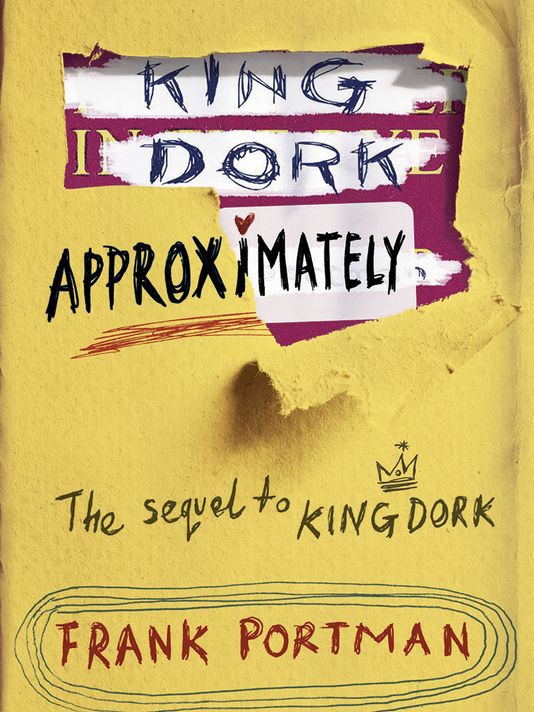
I don’t command a nerd army, or preside over a realm of the socially ill-equipped. I’m small for my age, young for my grade, uncomfortable in most situations, nearsighted, skinny, awkward, and nervous. And no good at sports. So Dork is accurate. The King part is pure sarcasm, though: there’s nothing special or ultimate about me.
— Frank Portman, King Dork (2006)
King Dork Approximately is the recently published sequel to King Dork. They are very funny and truthful YA novels, written by Frank Portman, with a quite pro- sex and drugs and rock and roll vibe to them. They are told by protagonist Tom Henderson, a disaffected, cynical, guitar-playing teenager in a band whose name changes every other minute (The Mordor Apes, with Mithril-hound on guitar, Li’l Sauron on Bass and Necrology, and Dim Todd on Percussion and Stupefaction, soon gives way to The Elephants of Style: Mot Juste on guitar, Sam Enchanted Evening on Bass and Animal Husbandry; First Album, Devil Warship). In King Dork, Henderson’s discovery of his late dad’s annotated copy of The Catcher In The Rye creates all kinds of havoc for our hero. The movie of the first book has been in production for ages at Will Ferrell and Adam McKay’s production company, Gary Sanchez; Miguel Arteta (Freaks and Geeks, Youth in Revolt) is attached to direct. Portman is also the frontman of the old SF pop punk band, The Mr. T Experience. MTX, as it is known locally, was formed in Berkeley in 1985, so Tom Henderson comes honestly by his rock and roll bona fides.
These are the only YA books I know of that describe teen sexuality convincingly from the boys’ side of the equation. Here is a quote from Tom Henderson:
You can’t control “the hots.” You don’t say, like oh, I would ordinarily like this girl’s ass, but now I know she’s a Republican or likes the Doors then I suddenly don’t. It doesn’t work like that, at least not for me. And it’s true the other way too: things like accomplishments or abilities don’t much matter like people seem to think they should. “Well, Gwendolyn, now that I know you came in second in the spelling bee, I suddenly inexplicably want to ramone you.” No, not so much. An ass is an ass is an ass. You either like it or you don’t, and spelling bees don’t enter into it, so to speak. But honestly? I usually do like it.
In the travails of Henderson and his friends and foes, Portman expertly portrays the real-life horrorshow teens face in attempting to form a halfway operational understanding of — well everything, but most specifically, how gender politics will operate in the adult life they’re about to embark on. We really aren’t serving the teens too well there, it has to be said. What have they got to work with? Some ghastly farrago of Grand Theft Auto, The Fault In Our Stars, The Hunger Games and Nicki Minaj videos.
I met Portman in the sumptuous wood-paneled Tap Room at the Huntington in Pasadena, where he was staying during his book tour for King Dork, Approximately. He’s handsome, not too tall, dark hair, blue t-shirt. Strikingly, Portman’s gimlet-eyed, cherubic mien has remained unchanged for decades.
What is YA literature, even?
Well, another question is: What is an adult? and then, What is a young adult?
Some people see it one hundred percent in pedagogical terms — like, these are materials to help shape a young mind, and they see anything that doesn’t aid in that program to be undesirable. But that is not looking at it as literature, and it’s not looking at the readers as readers: It’s looking at readers as objects of engineering. You know the argument: “How does this help us raise children to be better people?” And I certainly don’t agree with that way of looking at it. It’s even more bizarre, when a writer looks at it that way: it’s imposing a limitation on, or devaluing, the interesting part of literature.
Did you read that A.O. Scott thing about “The Death of Adulthood in American Culture”? He was going on about how he doesn’t like it when he sees grownups reading YA books, like it’s beneath them or something.
In every genre there’s gonna be things that are not worthy of attention, and things that are worthy of attention. So this idea, that you should look at these books as, “This is for this age group, and not for that age group,” and judge based on how well they fit into your idea of those parameters? That’s a really terrible way to assess a piece of art.
If you’re writing that way, that’s crazy, too: “My character can’t express this thought, because this is a young adult novel and young adults shouldn’t be reading that.” That’s a recipe for a dishonest novel. I mean, there’s different kinds of novels! But you need to be honest, at minimum; if you’re pulling punches for any reason, then you shouldn’t be writing that book, you should be writing a different book, you should be writing a different character. And that’s true of anything, any novel, any piece of fiction, any song, anything.
There’s still another way to look at this: A lot of YA books that are marketed explicitly as YA are sort of fairy-tale, or aspirational or fantastic narratives that people can project themselves into in the same way that they would a romance novel or thriller, or adventure story. The scenes and events are completely unrealistic, deliberately so, in order for the reader to fantasize pleasurably. I see a potential trainwreck — politically, culturally — in reducing literature essentially to an escapist project.
I like my escapist fiction to be different. I like to involve, you know, a tough-talking, wisecracking detective, maybe. A novel is several things at once: It’s the entertainment it’s supposed to be for a kid; it can be art. There can be an amalgam of various aspirations for it. I mean, I take the view that you alluded to, which is that YA is various things that a lot of people find unsavory, as well as a contemporary marketing category; it’s also a tradition that goes back nearly to the beginning of American literature and I guess you’d really have to trace it to Huckleberry Finn.
Which is really didactic! — a work of moral philosophy.
I always think of this also in terms of rock ’n’ roll music, teenage music. Its origin is in like, girls and cars, but in the midst of this there are works of art: “You Really Got Me,” for example, a song that keeps seeming great long after you turn twenty-one. If you live long enough you realize that someone’s always really gonna get you — that’s not something you’ll ever really outgrow.
I’d kind of thought there’d be a time in the future when everyone was an adult and all of this crazy confusion and misapprehensions about other people and what they’re all about and just all the troubles that you go through interacting with reality would all kind of level out, and that is just not the case at all.
Your kind of unwise romantic entanglements and whatever… people who dismiss the relevance of this primordial teenage version of this thing, maybe, are still under the misapprehension that in a few years everything will be sorted out, and everyone will have the right views of everything and it’ll all be fine.
So… The Hunger Games. This is the kind of fantasy fulfillment story I was thinking of, where everything comes right in the end for our heroine. Which in this case, as in Titanic, requires the literal sacrifice, or attempted sacrifice, of the guy’s life: “Now, show me you love me, and DROWN!” this thing is saying. It’s very sick how young women are trained to believe in the existence or desirability of this grand passion: to expect that one day like, oh, now I’ve finally found the guy who’s gonna drown for me, my prince will come, and so on. All this by way of saying that I really loved all the beautiful passages in your book where Tom Henderson just baldly states: “I like girls.” Like: in general!! I haven’t heard this stated so clearly since Dobie Gillis.
Dobie Gillis is a great model for how you can depict that dynamic in a true yet hilarious way. I agree: That’s a good point of comparison…that doesn’t make me sound too good.
What?! It’s GREAT. It’s really good!
People shy away from things that are gonna make people go “ooh, not ok.” Well, if you were writing a novel about a fifteen-year-old guy, you know, and you shy away from sex, you’re lying. Why are you doing it even? Write your novel about a turtle or something. I don’t know about the sexuality of turtles but you can’t tailor your characters’ thoughts to someone’s idea of what, in a better world, this guy would be thinking. What’s the point of doing that? That’s propaganda, that is inimical to the whole idea of literature.
Writers try to veer away from things that are going to make people upset, and not like them. I think male sexuality has always been “problematic” in teen fiction, so what happens in characters is, you’ll have this guy who is pretty much a plain old regular teenager with maybe some quirks or whatever, but he’s like the one guy who’s not obsessed with sex, he’s the one guy who just wants the one special girl, and he’s the unusual one, and everyone else is the boorish animal.
And so then there’s a countervailing idea that we must be honest about these things. So now there’s this new version, where sort of the honest depiction of this very powerful thing that is essential to how human beings are, and you have to kind of figure out how to shy away from it.
It’s weird, because if you write a novel about a teenager and you leave out the sex, or you make him have the sexuality of a well-adjusted forty-five-year-old — not that I would say that there aren’t those people, but you’re doing something very weird. That’s a whole different kind of story that you’re telling. If you’re trying to tell the story of a real person, then this is what you got. You got the guy that is literally a hundred percent of the time thinking about asses. So you know, it’s funny, I think, it’s maybe a little bit sad, but it is what it is.
It’s not sad: It’s just what it is! I mean, I don’t think it’s sad or happy, it’s just a thing. I remember I was with my mom who’s now eighty-four or whatever — this was maybe ten years ago — we’re with my nephew who’s in his thirties, having coffee. I forget how we got on the subject, but suddenly I found myself saying to my mom what I had thought was so apparent: “No, no, mom, young guys are thinking about sex literally all of the time. Like if they see a woman they think about literally having sex with her — right? Pretty much. You know this, right?” And she’s like “Oh, no, of course not, that can’t be true!” and I look at my nephew!! And he’s like, “Uh. If there’s two chicks and they’re hot I kind of think about them doing it together.” And my mom was just flabbergasted. She goes, “Really?!”
I mean, that’s just biology
.
And because we’re humans in the other way too, it causes obsession and neuroses and…
Pain.
…all this stuff. So Tom goes like, “So what are you supposed to do if this is the case? You know: pretend it’s not the case? But it is still the case, so.”
I know the tendency is to say “Oh this is a YA thing, so it’s not to be taken seriously,” but we need to grapple with these facts. Because this idea that there’s this beautiful unicorn boy who only thinks about Miss Girl and is gonna drown is just such bullshit, and it doesn’t serve young women, or young men, at all. Real boys are a different way. Not a bad way! Just, different. Like they survive, for example, that has got to be a good thing.
You have to be honest, you know, and there are gonna be attacks on that basis. And a lot of the people who complain about this kind of stuff are from an intellectual culture where they think of themselves as the good people who are representing the values of honesty, right? Who will criticize this kind of thing by saying, “Yes, this is how people do really think, but we don’t need to read about it! And you should be more responsible!” So that’s the one narrow context where this person would counsel dishonesty in literature, and I think that is a very interesting thing, but it’s awful. It’s not the right way to look at what a novel is, either as a writer or as a reader or as a critic.
We have ideological chauvinism on the left and on the right. Yes.
I’ll tell you something. You know sometimes you’ll just come across something and it’ll just be so clarifying that after a lifetime of irritation and puzzlement suddenly it all just smacks into focus? — this is from Thomas Merton, it’s from one of his journals, and he’s talking about how the liberals and the conservatives are both inhibited or motivated by the same type of conformity; in either case, the dread of being left out of their reference group.
And that’s what snapped into focus: If you look at political discourse, it all seems so dumb and trivial, but if you look at it purely as group dynamics then it all suddenly kind of makes sense — Twitter outrage, all of this stuff — if you look at it as in-group signaling, rather than discourse. We’re not talking to each other, not arguing with each other, it’s just like: “We’re the good people, they’re the bad people, and thank god I’m in the good people group.” Everyone.
I’m from the San Francisco area, I had never met a Republican until I was like twenty-five — I didn’t even really think they existed, you know? — that’s my world. But we definitely have the pretenses of being you know, rational and liberal and tolerant, and in fact nobody is. Me, you, everybody, at bottom everything is very tribal.
Well here I have to disagree some, because there really is some attempt at tolerance out there — that’s what I love about your books, in fact; they’re very striking that way. There’s a ton of people out there who aren’t quite so jingoistic about their tribes and that’s why I’m here talking, you know? This is really important to me. Your book doesn’t give the impression of having been confected to please anybody. It’s a reflection of what really happened to someone growing up, and I really appreciate that. So like Tom Henderson, who is so inconveniently candid — this is part of what I want to know: How has he been received?
King Dork was very well received and it was very successful and it was this unexpected thing. I think how Tom Henderson is received is a different question, and I’m actually quite proud of the fact that this is a question that has caused people to have to do a little thinking before they can answer. He’s a character that justifies his existence, and it needed to happen. Because you know, sometimes people write depictions of well-adjusted, kind people who are just completely rational and reasonable to each other and obviously, that would be a terrible book if you did it, and that’s not the way life is experienced by anyone to any degree. But then you run a risk when you are honest, because reality is unacceptable in so many ways; a lot of people don’t like to see reality depicted.
There is this whole thing of “likable characters.” If that’s something you as a writer are concerned about, then I think you’re in serious trouble. “I gotta make this character likable, god what if people don’t like him?”
There will be responses not just to my book, but any book about teenagers where there’s an objectionable “attitude” or something and it’s like, “Okay, well done, Sherlock Holmes, you’ve cracked it! This is an adolescent who is narcissistic and has an unrealistic view of, and doesn’t understand, other people! You’ve cracked that adolescent problem wide open.”
That’s the thing, you’re so good at creating the conditions for sympathy for this kid who’s really troubled in many ways, but also like totally, and this is where I’m gonna quarrel with you on this whole idea of likability, your heart as a reader just goes all the way out to Tom Henderson. He’s a mess and you’re just like oh, hon
A lot of the things he’s confused about, he doesn’t realize he’s confused about them, and that simple thing can lead to a lot of hilarity, because this guy’s operating under these parameters that are completely mistaken, without any way of figuring it out. That’s the other thing that people want to see from a coming of age story: They want the lessons to be learned.
So what would Tom Henderson say to the girl who is waiting to be rescued by a Handsome Prince, I wonder.
He’s a cynical person generally, but he also has an affectation of cynicism — which is sort of telegraphing almost its opposite, a dismay at the fact that his view of the world is basically, survival of the cruelest and the dumbest. That nobody really cares about anything, and that they’re all faking it with every nice thing — but it’s also a wish that it weren’t so, and an aspiration to maybe somehow transcend this, symbolized by this idea of the Sex Alliance Against Society, as he puts it, the thing where you have a club where it’s two of you, at least, against the world, and he’s obsessed and fantasizes about it, even though he thinks it’s probably impossible, even though he does inch towards that in a way. So I think he would say that that is completely delusional from every angle.
I don’t know what, it’s an understandable psychological thing that people wanna be rescued, they wanna be saved, you know, raw form, life is terrible, a terrible experience and a terrible struggle, and you have these things that, like flashes of joy that mitigate how much of a struggle it is, so I can understand that, but I think that there are other stories. That’s one kind of powerful story.
There’s also the story where you’ve got a puzzle that you’ve gotta sort out for yourself, and then you sort it out, and you get it, and you use that to get to the next level, as in Donkey Kong.
But wait, come on. I think Tom Henderson can come to grips with this question on a deeper level. I mean he’s read, he’s read Austen. And I love how, in order to understand it, he kind of has to break Austen down into a series of economic questions, which is actually exactly correct. But he doesn’t go so far as to think about what is actually the case, which is that it was literally impossible for a woman to progress in that society absent those calculations.
I mean just for Tom Henderson, that is a level of awareness of reality that is completely unavailable to him.
So like, to what degree do we allow literature to just be a balm for the wound?
That’s one of those questions that is probably unanswerable. I believe it’s in Annie Hall where he tells the joke about the guy who thinks he’s a chicken, and it’s like “Well, we could cure him, but we need the eggs” — it’s that kind of thing. There’s a preposterous, and maybe even a damaging thing about some of these myths and delusions, but they are used in art in a way that that you need, and that you realize as you observe more of life, as the basic truth. This idea that there is a possible state of affairs where everything is equally good and fine and there’s no downsides and upsides, if only you calculate it right then you get to this point, you know it’s not the reality, it’s going to be flawed–
So are you saying, I mean, it does us good to even think that that’s possible.
Right.
But if it were yourself alone then maybe that would be like, nothing special, but you know that others have felt it too, and you also read about others feeling it, and it’s that echo that makes it possible to get up the next day.
This is something I’ve been very used to in my so-called career: there’s an almost exact parallel between being a YA author and therefore at the kids table, and in publishing and business, sort of condescended to, although strangely, in a lot of cases, we’re the ones who are selling more books, we’re the ones powering the ship — but it’s kind of like oh, you’re so cute! — and patting you on the head.
So pop punk — in the general world of punk, no one or very few people and nobody in the critical world could conceive of something interesting being done in this context, so they didn’t see it. I can’t complain about it now that the music industry is over. I am where I am; I’m in actually quite a good position with this legacy of songwriting. But I’ve noticed the same thing with YA publishing, where you end up in these kind of obnoxious situations with your “betters,” etc., but there is something kinda great about the element of surprise when the punches land, and there’s a lot of energy in it, and it’s like, it’s money-making in publishing.
It reminds me of punk rock in a lot of ways. You’re not the main thing going on, you gotta jump up and down and make as much noise as you can just to get noticed and you crash every party you can, and it’s hard to do it but when you do it there’s something great about crashing the party.
And the audience isn’t all just people with Ivy League degrees?
No no, and this is something that like I always say — I write for the world, like, you say you write the book that wants to be written. I really believe that that’s the way to do that.
But I will say that teenage readers are great. They don’t bring all of this trivial baggage to the appreciation of the book. If they don’t like it, they don’t like it, and they let you know. But when they get it, they enter into it solely on their own terms, it lives in their world and they don’t subject it to all these various tests. So that’s a great audience.
I hear from lots of girls who very much identify with Tom Henderson and his existential predicament, and that is not ever presented as something unusual or weird. It’s not like, “Hey I just want you to know that even though I’m a girl…” — they’re not saying that, they’re saying “I feel the same way.” Teenage readers are more sophisticated than most people give them credit for, and I find that very encouraging and inspiring.
This interview has been edited and condensed, for length and clarity.
The Man Who Won't Let Go
by Casey N. Cep
“He Stopped Loving Her Today” might well be George Jones’s most famous song, but I don’t think it was his best. Eighteen years before that one, he released my favorite: “She Thinks I Still Care.”
The two songs are a little like bookends. “She Thinks I Still Care” is a first-person confession from a man who cannot stop loving a woman who has left him; “He Stopped Loving Her Today” is a second-person elegy for a man who only stopped loving a woman when he died. George Jones didn’t write either song, but he made you believe he had lived both, falling in love so foolishly that only death could release him from loving a woman who had long stopped loving him.
The Possum never said the two songs were related, but they’ve always seemed that way to me, especially since the man in “He Stopped Loving Her Today” is reading love letters from 1962, the same year that “She Thinks I Still Care” was released. Jones stretched a single love affair the way he did the songs themselves; he never met a syllable he didn’t like well enough to turn into two. Part of what’s so distinctive, so delightfully Jones is that his vowels seem to go on forever and ever: Sheeeee thinks I stiiiiiiiill caaaaaaaare, and that’s just the chorus.
He’s as unwilling to let go of those vowels as he is the woman who stopped loving him. The song’s charm comes from his unwillingness to concede that he’s the one who won’t let go. “Just because I ask a friend about her,” he says, she crazily thinks that he is still interested, only that’s not all he did; he also “spoke her name somewhere,” “rang her number by mistake,” “haunt[s] the same old places,” and “saw her then went all to pieces.”
There are a lot more ways today of claiming that you don’t still care but looking like you do: Caller ID makes those unintentional calls more obvious, and it was a lot safer writing letters you’d never mail than drafting emails you might send with a sloppy keystroke. Worse still are the accidental likes on your ex’s Instagram and favorites of year-old tweets. It’s much harder now to disguise your lingering feelings, though the speaker in “She Thinks I Still Care” wasn’t doing a very good job in 1962, either.
Even if he refuses to say so, he’s still clearly, deeply in love with the woman who left. The closest thing to a confession is when he claims that “if she’s happy thinking I still need her, then let that silly notion bring her cheer.” Joke’s on him, of course, because she really doesn’t seem to care, and he can’t even admit how much he does.
I kind of like that the man who still cared kept on caring for another eighteen years: asking friends about her, speaking her name, calling her number, and falling to pieces until the day he died. It’s the same kind of foolish commitment George Jones showed in his own career, refusing to give up on country music for decades, singing those sad country songs until he died in 2013.
Country Time is an occasional column about country music.


